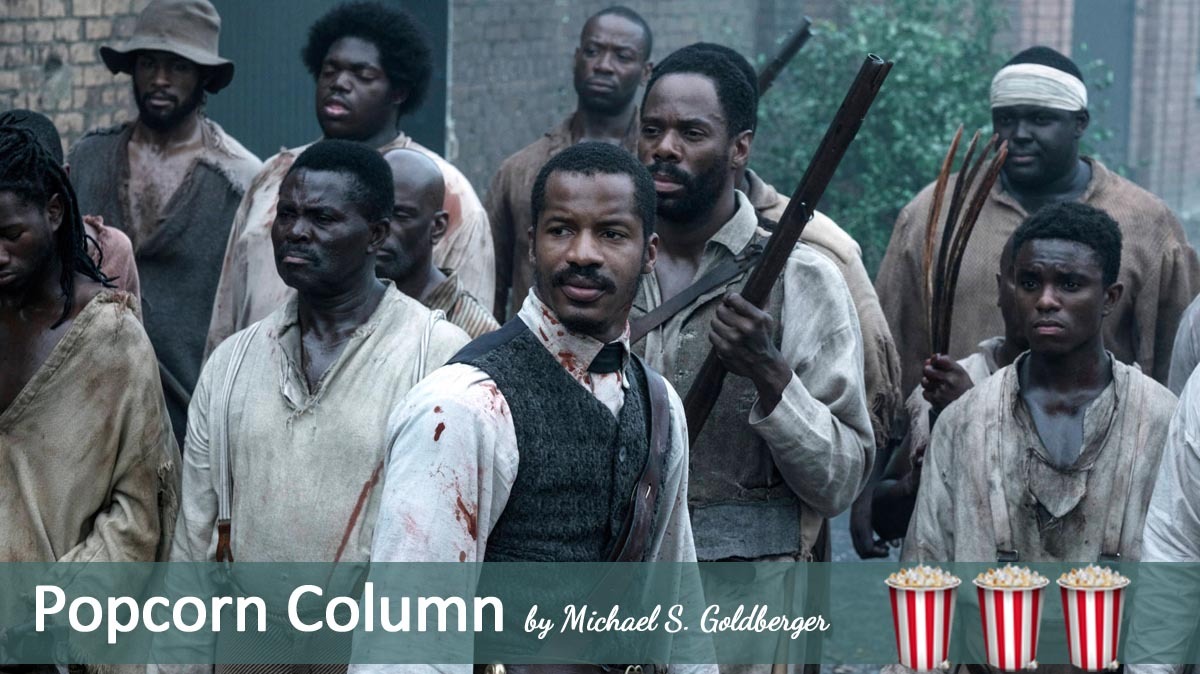
'The Birth of a Nation': A Painful Truth
Watching writer-director Nate Parker's "The Birth of a Nation," a biography of the slave Nat Turner that concludes with the namesake rebellion he led in 1831, you can't help but anguish over the idea that only 155 years ago slavery was perfectly legal in the Southern United States. That kind of historical realization always gets me wondering what crazy practice do we abide today that our heirs will one day see as similarly primeval and egregious?
Perhaps it'll be the current health care crisis ... the fact that "once upon a time" nearly half the country wasn't certain if it wanted to ensure the less fortunate half's well-being through adequate medical care. You know: "Hey, what am I, my brother's keeper?"
That's one of the great things Clio, the muse of history, is able to provide — a comparative scale of what, throughout the ages, is considered to be proper human behavior. In that light, filmmaker Parker's often brutal, eye-opening conclusions about the American slave experience offer a basically responsible dramatization of this sorrowful chapter in our history. Also starring as Turner, the literate slave who became a preacher in Southampton County, Virginia, Parker enthusiastically but carefully builds the background that leads to his character's fateful destiny.
When he shows an intellectual curiosity, Nat gains the favor of Miss Elizabeth, the plantation owner's wife played by Penelope Ann Miller. She teaches him to read, but not the multitude of books on the shelves, which are "for white people" and he "wouldn't understand them anyway." Rather, in a self-righteous bit of sanctimony, she makes the Bible his primer. The tome becomes his constitution and he wins fame not only among fellow slaves who become his parishioners, but among neighboring slave owners who hire him, ironically enough, to placate their slaves.
Many scenes will have you cringing from the sheer inhumanity. Expect a random crushing of skulls, families separated, unthinkable, sadistic punishment and, almost as disturbing as the physical violence, there's the utterly disdainful obscenity of believing another person is your rightful chattel. And, because the slave owners possess an ever-increasing fear that the era of free labor might be ringing its death knell, add the resultant aura of seething hatred.
But for any thinking person, the real abhorrence is knowing that, as ugly and despicable as these depictions are, the real thing was doubtlessly more grotesque than we'd dare imagine. You scratch your head. How could it be? Unlike the revulsion and terror of horror flicks, there is no eventual release from the nightmare portrayed. Instead, it grows like some mythological monster, sprouting a swarm of tentacles, one for each aspect of the unavoidable incivility it represents.
Thus the roots of inevitable rebellion are carefully and studiously planted. Responding to historical research confirming that the highly religious Turner reported spiritual visions that helped form his convictions, Parker weaves an artistically competent chronicle fashioned with a mystical notation to spur each of the insurgent's revelations. But while basically adhering to the known outline of Nat Turner's life, in positioning him as a martyr to the cause of emancipation, the filmmaker does take several liberties in the name of dramatic effect.
To frame the saga that concludes some 30 years before the Civil War, the script paints an engaging, socioeconomic portrait of the South. While it was military might that ultimately enforced the Thirteenth Amendment, Parker's take agrees with the majority of historians who hold that slavery's profitability was waning anyway. Housing and feeding slaves for maximum productivity was no longer cost effective.
Plantations began to struggle, and slave owners like Armie Hammer's Samuel Turner, who had only a slight sentimentality for his boyhood playmate, Nat, now worried not only for his pocketbook, but about his family's diminishing social status. Watching this veritable degrader of humankind fret over what neighboring plantation owners thought of him really sends you for a loop.
In epilogue, while Pharaoh's misgivings and attempt to recapture the Israelites failed, the Southern landowners adopted a new variation on the old ploy. Call it the Loophole of Freedom. Like their Northern industrialist brethren, they found that working folks to the bone, paying them the barest subsistence wages and giving them the freedom to pay their own room and board was far more lucrative than the now outlawed system. And, because they still owned everything, they could make even more money by renting hovels and selling food to their former slaves.
This movie is tough stuff. While we still smart from that horrid past, the labor pains dramatized in films like "The Birth of a Nation" offer a reckoning with the truth ... doubtlessly the most crucial element necessary to persevering on the rocky but ideally noble road that is our experiment in democracy.
"The Birth of a Nation," rated R, is a Fox Searchlight Picture directed by Nate Parker and stars Nate Parker, Armie Hammer and Penelope Ann Miller. Running time: 120 minutes















